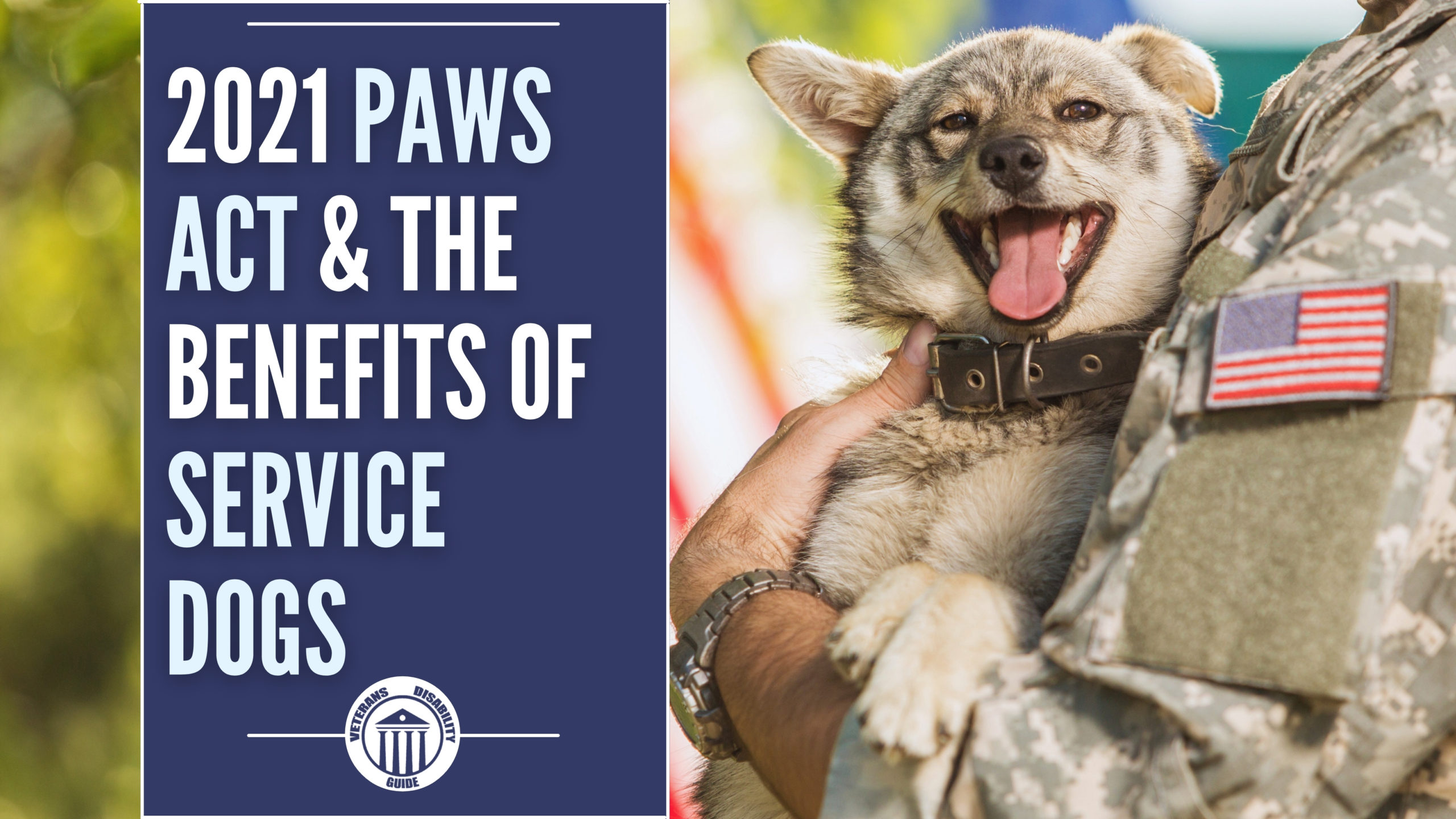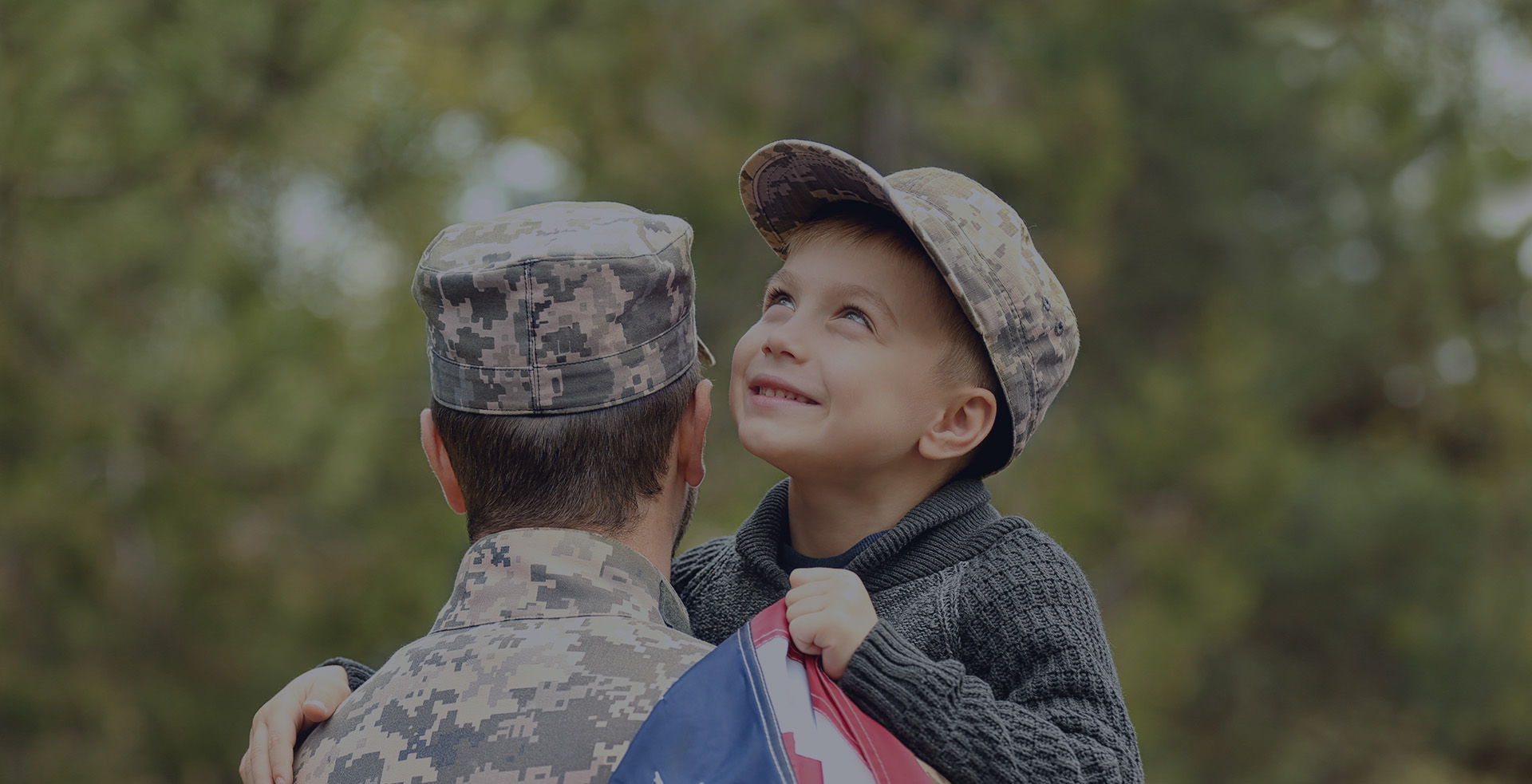
07 Sep 2021 PAWS Act & The Benefits of Service Dogs
The 2021 PAWS for Veteran Therapy Act
Puppies Assisting Wounded Servicemembers (PAWS) for Veterans Therapy Act is a new program created to assist veterans with adopting and training service dogs. The Act calls on the Department of Veterans Affairs to establish and implement a five-year long program that will make this process accessible for anyone in need of a service dog.
The PAWS Act was years in the making and targets veterans who suffer with post traumatic stress disorder (PTSD). The Act addresses the main problem that prevented veterans from attaining service dogs: cost. Under the new law the VA will team up with non-profit groups.
These groups will help veterans train a service dog to recognize situations that could cause stress for the veteran, and train the dogs to react when the veteran is experiencing a flashback, depression, or anxiety. At the end of training the veteran can adopt the dog, free of charge.
The PAWS Act is an important step in creating more accessible treatment and care for veterans who suffer from PTSD. While service dogs are not the only option for treating symptoms of PTSD, other options are few and far between.
About 20% of veterans suffer from PTSD, yet many who suffer have trouble accessing basic treatment services, like traditional therapy, with the VA system. Other veterans have trouble admitting that they need therapy at all. With the PAWS Act a service dog is now easier to obtain with help from the VA. It also creates another form of PTSD treatment for those who may not be comfortable with traditional therapy.
The Benefits of Having a Service Dog
11 to 20 out of every 100 veterans report suffering from PTSD. Despite this large portion of veterans impacted by post traumatic stress disorder, very few receive the help and treatment that they need. Research has proven that service dogs help with reducing over half of PTSD symptoms. Here are four ways a service dog can help a veteran cope with PTSD, both mentally and physically.
Transitioning to Civilian Life
Transitioning home after serving can be difficult for some veterans, a service dog can make this process easier. Many veterans are used to the order and authority that comes with serving. That level of structure and authoritativeness is often lacking in their lives when they become civilians. Creating a schedule and training a dog can provide the order that many veterans need in their day to day lives.
More Active Lifestyle
PTSD can be very isolating for those who experience it. Many veterans have symptoms that are so extreme that they avoid socializing, or any other activity that could trigger them. Isolation can lead to depression and worsen a veteran’s anxiety. By training and adopting a service dog a veteran is forced to have a more active lifestyle. An activity as simple as walking the dog or going to the dog park can help to increase one’s mood. Exercise is also a great way to combat feelings of depression.
Improving Trust Issues
PTSD can damage a veteran’s ability to trust others, even those closest to them. Dogs are loyal to a fault, this loyalty can be comforting to those suffering with PTSD and help a veteran learn to trust others again. In addition to being loyal, dogs will also love their owner unconditionally. Often veterans with PTSD can feel isolated, or their symptoms can cause them to push others out. A service dog ensures that at the end of the day there is someone by the veteran’s side reminding them that they are never truly alone.
Providing Comfort
A service dog can provide protection for a veteran. Flashbacks and nightmares that come with PTSD can make even the bravest people feel scared and vulnerable. A service dog by your side reminds you that you are never alone, and they can make you feel safe- even if you are not in immediate danger. While a larger dog may help some feel more protected, dogs of any size can be trained to become service dogs.
Ready To Start Your SSDI Claim Today?
See If You Qualify, Our Evaluation is Free and Takes Only 60 Seconds to Complete.


